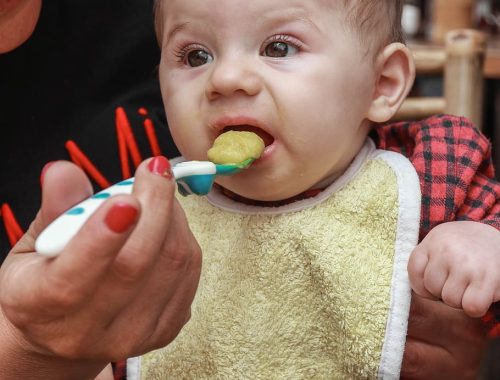
Causes and Treatments of Colic in Infants
Dealing with colic in general can be a daunting task. And when it comes to infant, it can be even more difficult when you don’t have the right techniques and experience to handle this condition. But not to worry! In today’s article, we are here to help! Below, we will tell you more about colic in infants and how you can treat it! Read on.
How It Manifests Itself
It manifests itself with a desperate cry, as the baby suffers from stabbing pains in the belly. The baby flexes his legs against his abdomen, as if trying to defend himself against the pain. His screams and cries cause him to become very red and his belly will almost always be noticed to have a lot of air. It usually occurs between 2 weeks and 4 months.
If a baby has episodes of intense crying for at least 3 hours a day, without us being able to calm him during this time, and these episodes occur at least 3 days a week, for at least 3 more weeks, the so-called Wessel criterion is met to detect that the child has infant colic and that we need to consult our pediatrician.
This problem may be occasional or habitual, as some children are more prone to colic than others. In this situation, we must take a series of precautions.
Possible Causes of Colic
The main cause of colic, as we have said, is the immaturity of the intestine, but there are other causes that can cause it. Some pediatricians talk about hormonal factors that can affect your gallbladder or prevent you from feeling full when you eat.
As we’ll see later, the mother’s intake of lactose can also cause colic, as well as excessive air intake, whether from breast or bottle feeding. It can also be due to an alteration of the intestinal flora, or even to an inflammation of the intestinal mucous membrane, as well as to an intolerance or an allergy to other foods.
How to Treat Infant Colic

If there’s anything about infant colic, it’s that it’s frustrating, not only for the baby, but also for the parents, who see a child crying desperately and can’t do anything about it. The first thing to do is to analyze the child’s diet, because colic occurs more in children who drink formula than breast milk.
We need to pay special attention to the bottle we feed the baby with. If the child suffers from colic often and takes a bottle, it is advisable to switch to another type of bottle that can prevent it. There are milks on the market with anti-colic formulas that can facilitate bottle feeding.
In the case of a baby who frequently suffers from colic, it is very important to pay attention to the mother’s diet, eliminating the intake of bovine proteins and other foods that can cause allergies, such as lactose and gluten. It is also recommended that the mother avoid dairy products in her diet so that they do not pass into the breast milk, as they are very difficult for the child to digest.
Multiple Solutions
There are external factors that can help us avoid colic, such as the correct attachment of the baby to the mother’s breast, as well as the sucking of the child during the feeding. It is important that we consult our pediatrician in case we observe that something is not working well in the feedings.
We also need to be very careful about how we respond to the baby’s cries. The first thing parents need to know is that colic is a specific and common problem, and that the child who suffers from it is perfectly healthy. It is important to accept the baby’s crying, to welcome it calmly and to accompany it, without trying to prevent it from being quiet, because this attitude will make it much more nervous.
Massages are also a solution that is becoming more and more widespread. The simple fact of an adult hand on the baby’s abdomen can help a lot to relax him, helping him to expel air and facilitating the well-being of a caress.
The Importance of Supplements in Prevention
There are supplements that help prevent colic by giving them twice a day, just before a meal. It is a combination of probiotics, other natural extracts and prebiotic fibers that facilitate the baby’s digestion and, consequently, those colics that can cause so much discomfort.
During the first months of life, the intestinal microflora plays a very important role in the immune response and in the maturative development of the baby, in addition to preventing unwanted colic. Probiotics help to develop the microflora and therefore modulate this response and development.
There you are! With those tips, if your infant suffers from colic, you will be armed to deal with it without much struggle. What conditions do you often deal with with your child? Let us know about your techniques in the comments below.
You May Also Like

Infant Nutrition: Nourishing Our Little Ones for a Bright Future
2023-07-28
Exploring the Benefits of Tubular Steel Fences in Childcare Centers
2024-02-05

